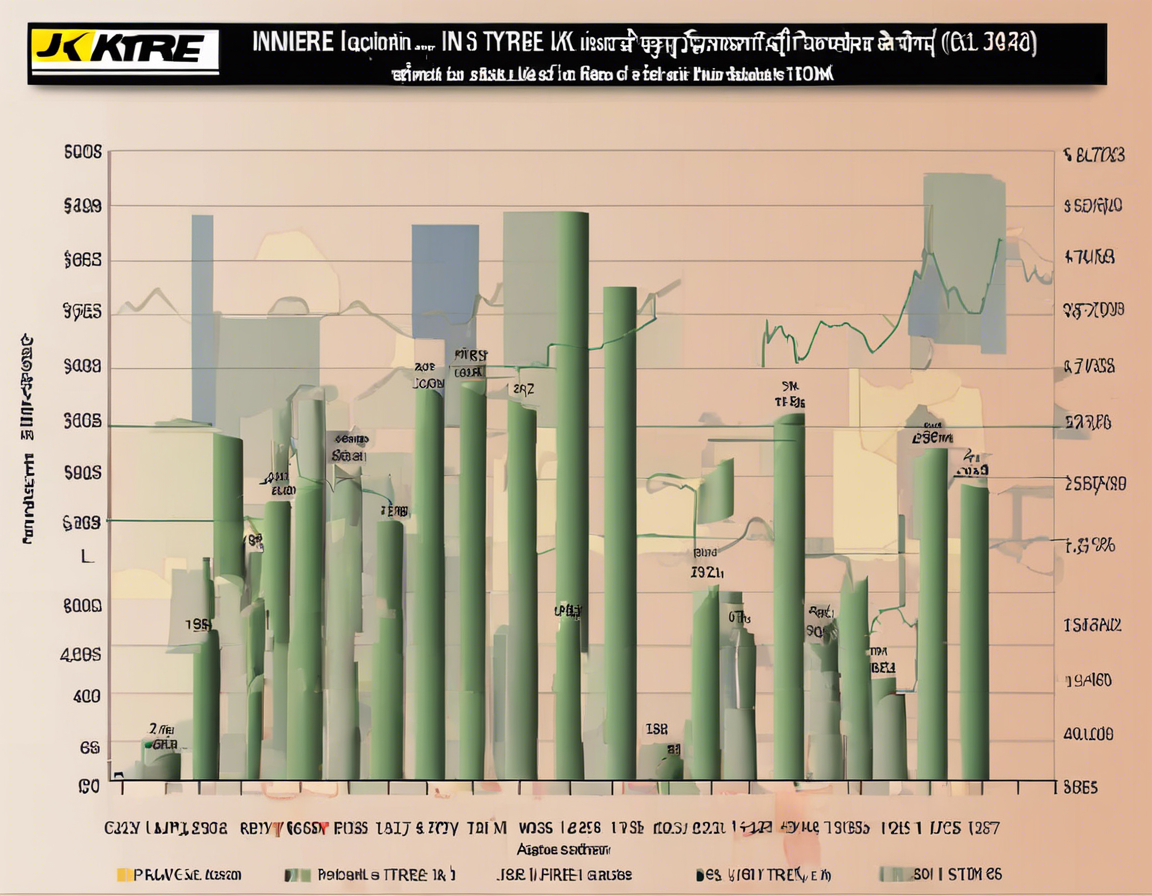Introduction
Analyzing Jk Tyre share price trends is essential for investors looking to make informed decisions when trading or investing in the stock market. Jk Tyre is a prominent player in the Indian tire industry, known for its range of products and strong market presence. Understanding the various factors that influence the Jk Tyre share price can help investors predict future movements and make strategic decisions to optimize their investments.
Factors Influencing Jk Tyre Share Price
Market Trends: Jk Tyre share price is often influenced by overall market trends, including the performance of the automotive sector, changes in consumer demand, and economic indicators. A bullish market is likely to positively impact the Jk Tyre share price, while a bearish market could lead to a decline.
Financial Performance: The financial performance of Jk Tyre, including factors like revenue growth, profit margins, and cash flow, can significantly impact its share price. Investors often look at key financial ratios like earnings per share (EPS) and price-to-earnings (P/E) ratio to gauge the company’s financial health and potential for growth.
Competition: The competitive landscape can also affect the Jk Tyre share price. Rivalry from other tire manufacturers, market share dynamics, and pricing strategies can influence investor sentiment and impact the company’s stock performance.
Regulatory Environment: Changes in regulations related to the tire industry, environmental policies, and trade agreements can impact Jk Tyre share price. Investors need to stay informed about any regulatory developments that could affect the company’s operations and market position.
Global Economic Factors: Jk Tyre is a player in the global market, and factors like international trade policies, currency exchange rates, and geopolitical events can influence its share price. Investors should consider the broader economic landscape when analyzing Jk Tyre share price trends.
Technological Innovations: Advancements in tire technology, manufacturing processes, and sustainable practices can impact the competitiveness of Jk Tyre in the market. Investors should track the company’s innovation initiatives and how they could drive growth and profitability.
Investor Sentiment: The perception of investors and market participants about the company’s prospects and performance can impact Jk Tyre share price. News, analyst reports, and market rumors can drive short-term fluctuations in the stock price.
Key Metrics for Analyzing Jk Tyre Share Price
EPS Growth: Earnings per share (EPS) growth is a crucial metric for evaluating the financial performance of Jk Tyre. A consistent increase in EPS indicates that the company is generating profits and could lead to a higher share price.
Debt Levels: Monitoring Jk Tyre’s debt levels is essential, as excessive debt can strain the company’s finances and impact its stock price. Investors should assess the company’s ability to manage its debt and meet its financial obligations.
Market Capitalization: Jk Tyre’s market capitalization reflects the total value of its outstanding shares and is an indicator of the company’s size and significance in the market. Changes in market capitalization can reflect shifts in investor confidence and stock performance.
Dividend Yield: Jk Tyre’s dividend yield indicates the percentage of dividend income a shareholder can expect relative to the stock price. A high dividend yield can attract income investors and support the stock price.
Profit Margin: Jk Tyre’s profit margin measures the company’s profitability and efficiency in generating profits from its revenue. A healthy profit margin can signal strong financial performance and support a higher share price.
FAQs (Frequently Asked Questions)
-
What has been the historical performance of Jk Tyre share price?
Historical data on Jk Tyre share price can be accessed through financial websites, stock exchanges, and online brokerage platforms. Analyzing historical performance can provide insights into past trends and patterns that could inform future investment decisions. -
How does industry competition impact Jk Tyre share price?
Industry competition can influence Jk Tyre share price by affecting market share, pricing dynamics, and profitability. Investors should monitor competitive forces in the tire industry to understand how they could impact the company’s stock performance. -
What are the key growth drivers for Jk Tyre that could impact its share price?
Key growth drivers for Jk Tyre include product innovation, expansion into new markets, strategic partnerships, and regulatory developments. Analyzing these growth drivers can help investors assess the company’s potential for future growth and stock price appreciation. -
How do macroeconomic factors like inflation and interest rates impact Jk Tyre share price?
Macroeconomic factors like inflation and interest rates can influence investor sentiment, market trends, and consumer demand, which in turn can impact Jk Tyre share price. Investors should consider these macroeconomic indicators when analyzing the stock’s performance. -
What role does investor sentiment play in determining Jk Tyre share price?
Investor sentiment can drive short-term fluctuations in Jk Tyre share price, as market participants react to news, rumors, and analyst reports. Understanding investor sentiment and market psychology can help investors navigate volatility and make informed decisions.
Conclusion
Analyzing Jk Tyre share price trends requires a comprehensive understanding of various factors that can influence stock performance, including market trends, financial indicators, competition, regulatory environment, and investor sentiment. By monitoring key metrics and staying informed about industry developments, investors can make data-driven decisions to maximize returns and manage risks effectively in the stock market.





